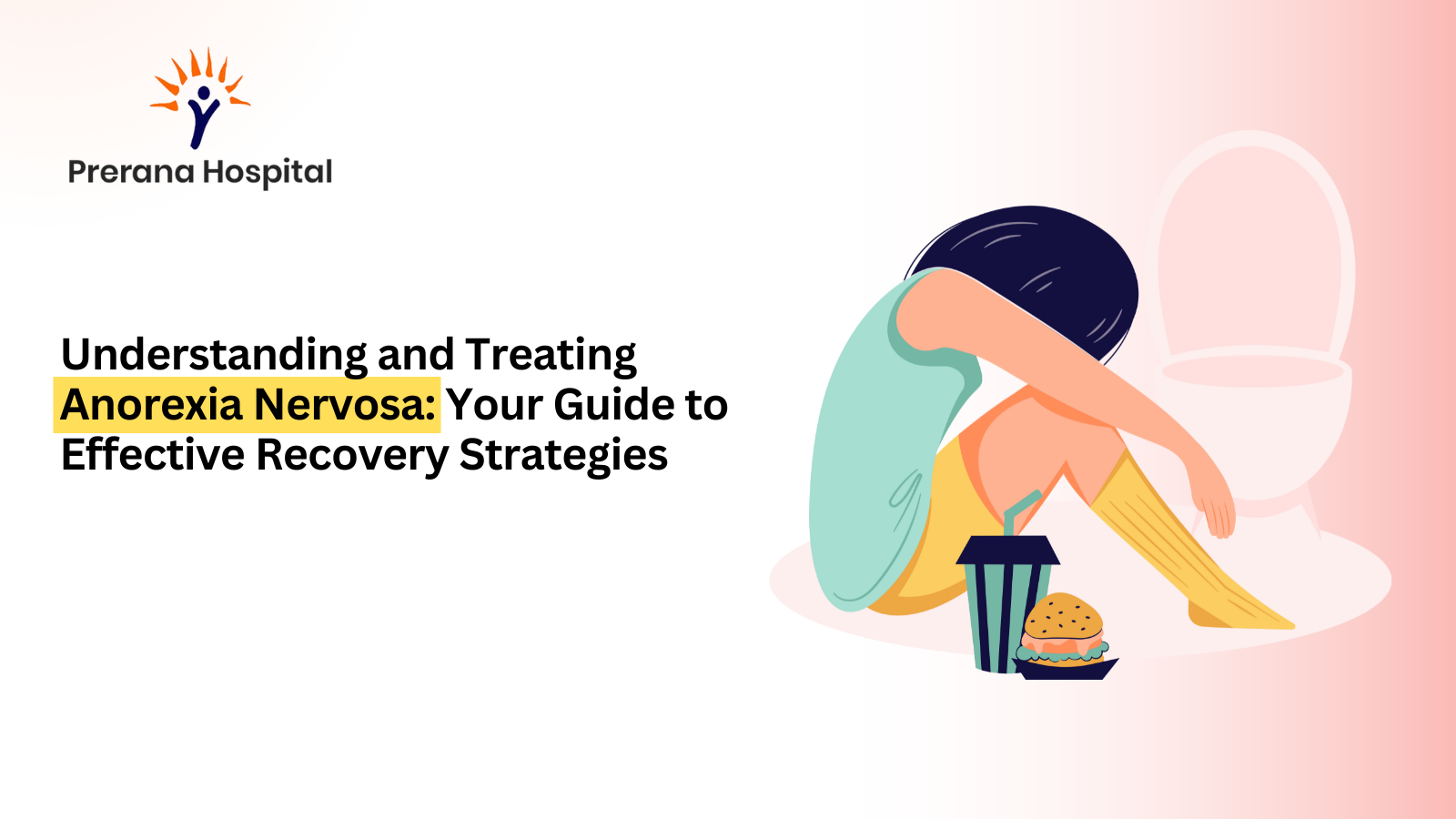

Please call +91 72042 70871 for outpatient appointments. The hospital is available for emergency 24/7.


Anorexia nervosa, a complex eating disorder characterised by an intense fear of gaining weight, can leave you feeling trapped and isolated. Millions of people worldwide grapple with this condition, highlighting the need for awareness and effective recovery strategies. This blog is here to guide you through this maze, providing information on understanding, treating, and ultimately overcoming anorexia.
To truly grasp the complexity of Anorexia Nervosa, it’s essential to understand its core characteristics and underlying causes. Anorexia is more than just wanting to be thin; it's a serious mental illness with potentially life-threatening consequences. Recognising its symptoms, causes, and impact on your physical and mental well-being is the first step towards recovery. Additionally, understanding that you're not alone can offer immense comfort and hope.
Tackling anorexia alone is a daunting task. However, the path to recovery becomes more manageable with the right support system by your side. This system may include:
Anorexia Nervosa is characterised by an excessive fear of gaining weight and a distorted body image that leads individuals to perceive themselves as overweight, even when they are underweight. Key symptoms include:
According to the DSM-5 criteria, a diagnosis of Anorexia Nervosa includes a restriction of energy intake, a significant fear of gaining weight, and a distorted body image.
While the exact reason for anorexia is unknown, several factors can contribute to its development:
Understanding these factors can help identify potential triggers and develop coping mechanisms.
Anorexia isn't just a mental health issue; it has severe consequences for your physical well-being, affecting various systems:
Recognising the signs of Anorexia Nervosa early on can lead to more effective treatment outcomes.
A thorough medical and psychological assessment is crucial for an accurate diagnosis. This process often involves a multidisciplinary team, with a psychiatrist playing a key role in evaluating the mental health aspects of the disorder. The psychiatrist’s expertise in diagnosing eating disorders ensures that the condition is accurately identified and that an appropriate treatment plan is developed.
Diagnosis of Anorexia Nervosa involves a combination of physical examinations and psychological assessments. Physical exams may include blood tests and imaging studies to assess the disorder's impact on the body. Psychological assessments, including structured interviews and questionnaires, help in understanding the severity of the disorder and any co-occurring mental health conditions.
Effective treatment of Anorexia Nervosa requires a collaborative approach involving various healthcare professionals such as nutritionists, therapists, and medical doctors. This team effort ensures that all aspects of the disorder are addressed, from physical health to emotional well-being.
Treatment for Anorexia Nervosa is highly individualised, focusing on both the physical and psychological elements of the disorder.
Medication management is often an integral part of treating Anorexia Nervosa. Commonly prescribed medications include antidepressants, which can help address underlying mental health conditions like depression and anxiety that often accompany anorexia. These medications support recovery by stabilising mood and reducing obsessive thoughts about food and weight.
Cognitive Behavioural Therapy (CBT) is known as one of the most impactful therapeutic approaches for treating Anorexia Nervosa. CBT concentrates on identifying and challenging malformed thinking patterns and behaviours related to body image and food. By addressing these cognitive distortions, individuals can develop healthier habits of thinking and coping with their emotions.
Nutritional counselling plays a vital role in the recovery process. Dietitians work closely with patients to create healthy eating habits and restore normal body weight. Nutritional therapy not only addresses the physical aspects of the disorder but also educates patients about the significance of balanced nutrition in maintaining overall health.
Given the severe physical consequences of Anorexia Nervosa, regular medical check-ups are essential. Monitoring physical health helps detect and manage any medical complications that may arise during treatment. This aspect of care is critical in ensuring that the patient’s body recovers alongside their mental health.
A psychiatrist specialising in eating disorders can offer invaluable support in both the diagnosis and treatment of Anorexia Nervosa. When searching for a psychiatrist, it is important to consider their experience, approach to treatment, and how comfortable you feel with them. The right psychiatrist can make a substantial difference in the recovery process.
Recovery from Anorexia Nervosa is a long-term process that requires a strong support system and ongoing care.
Family and friends are critical in supporting individuals through their recovery journey. In addition to personal support, finding local support groups and community resources can provide additional encouragement and understanding. These groups offer a sense of belonging and help reduce the isolation often experienced by those with eating disorders.
Learning to manage stress and emotions is vital in preventing relapse. Strategies such as mindfulness, relaxation techniques, and positive self-talk can help individuals build self-esteem and improve their body image. Developing these healthy coping mechanisms is a crucial step towards long-term recovery.
Ongoing therapy and continued support are essential in maintaining recovery and preventing relapse. Regular follow-ups with healthcare professionals ensure that any potential setbacks are addressed promptly, and continued care reinforces the progress made during treatment.
In conclusion, understanding and treating Anorexia Nervosa requires a wholesome approach that addresses both the physical and psychological aspects of the disorder. Early diagnosis, effective treatment strategies, and a strong support system are key to successful recovery. If you or someone you know is struggling with Anorexia Nervosa, there is hope. With the right treatment and support, recovery is possible.
Are you or a loved one facing the challenges of Anorexia Nervosa? Take the first step towards recovery at Prerana Hospital. Our team of experienced professionals is here to support you every step of the way. Contact us today, and let's discuss how we can help you get past this disorder.